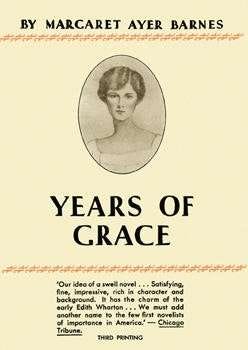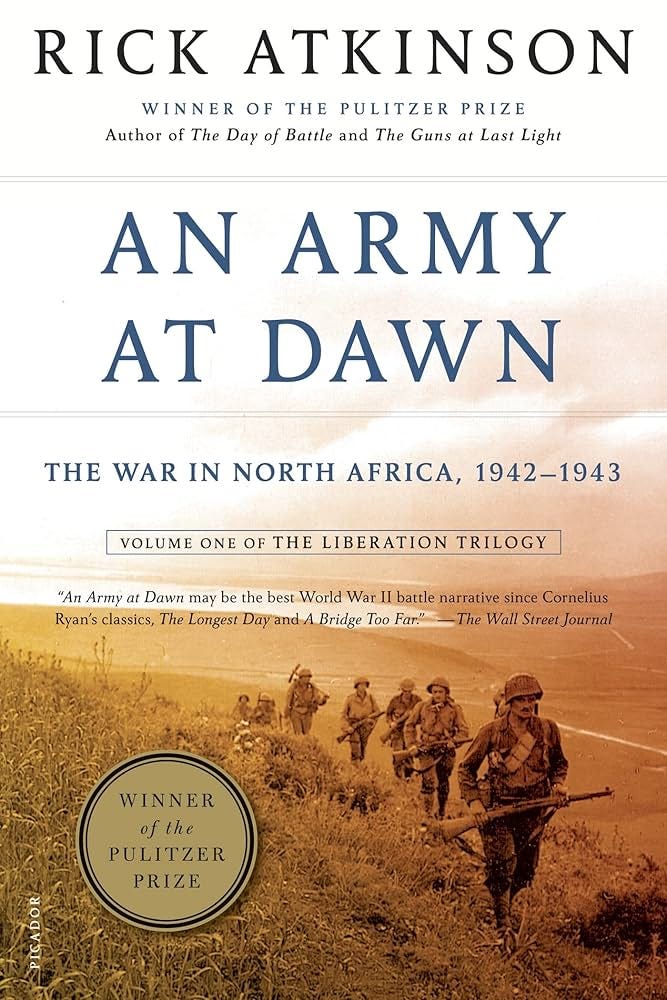What to Read Next: July 4, 2025
Issue #383, featuring a forgotten Pulitzer-winning novel
Happy Friday and happy 4th of July to my fellow American readers!
Our family has already enjoyed some pie (at world famous Betty’s Pies in Two Harbors, MN) and fireworks this weekend. I’ll hopefully get in some good reading time, some writing, and perhaps an airshow to cap it off. What’s on tap for you this weekend? I’d love to hear!
This week’s edition features:
A review of Margaret Ayer Barnes’ Years of Grace
Quick-hit reviews of other books I read in June
5 Things: Link and Opinions
Years of Grace by Margaret Ayer Barnes
Margaret Ayer Barnes always had a special love of reading, theater, and education. She even earned a degree at Bryn Mawr in 1907 — an unusual level of educational commitment in that era. (Many college-educated women of the time spent just a year or two at school.)
It wasn’t until she was 40, though, that she started writing. Prior to that, her energy was dedicated to work (as an alumni director) and family (she raised three boys). While on vacation in France in 1925, Barnes was seriously hurt in an automobile accident. With some encouragement from an artsy friend, she learned to pass her bedridden time with a previously undiscovered well of creativity. Setting a piece of paper upon her plaster cast, Barnes grabbed a pencil and went to work.
After a series of successful short stories, Years of Grace was published in 1930 and won the Pulitzer Prize the following spring. Despite her fascinating backstory, I had not heard of Barnes or any of her work prior to embarking on my Pulitzer project. By the end of its 580 pages, I was wondering why it wasn’t remembered as an American classic.
Covering protagonist Jane Ward’s life from her teens to fifties, Barnes manages to deftly mix sentimentality with hard reality — and the complex realizations that come with each new season of life. This paragraph captures that push and pull quite well:
“At thirty-six life was terrible, she thought, as she pulled on her rubber shoes. It had no dignity. It wasn't at all what you expected, when you were young. Youth wasn't dignified, of course, but it was simple, it was joyous, it was expectant. In youth life seemed — important. The things you thought about were important, no matter how inadequately you thought about them. But later you found yourself involved in a labyrinth of trifles. Worrying, ridiculous trifles. Things that didn't matter, yet had to be coped with. And you'd lost that sustaining sense that, at any moment, something different might be going to happen. At thirty-six you found yourself a buffer state between the older generation and the younger. You had to keep your son's trained nurse and you had to keep the peace with your mother-in-law.”
Barnes captured that universal struggle of trying to hold to tradition while also making way for new ideas — something that would have been rather poignant in those years of women’s suffrage and prohibition. I really enjoyed Years of Grace and can easily recommend it to anyone interested in coming-of-age classics that rely less on a thrilling plot and more on character growth.
June Round-Up
Short takes on other books I read this month. This list does not include books that I’ve given a full review in the newsletter.
An Army at Dawn by Rick Atkinson — The first book in Atkinson’s Liberation Trilogy won a Pulitzer in 2003. It was very good, but you definitely have to be a WWII armchair historian to enjoy it.
Northland by Porter Fox — A history and travelogue across America’s 4,000-mile northern border. Now that I’m just ~150 miles from Canada, it felt very appropriate. If you’re into travel narratives that mix in some history, you’ll like this one.
The Gales of November by John Bacon — A new book for the 50th anniversary of the Edmund Fitzgerald’s sinking in Lake Superior, and another very appropriate read for our new locale. It’s super good, but doesn’t come out until October, so I’ll wait until then to give it a full review. Definitely pre-order it, though!
The Perfect Storm by Sebastian Junger — The terribly sad and true story that was then made into the well-known feature film of the same name. Junger weaves a fantastic narrative with just the right amount of history, thriller, and backstory. It’s not for everyone, though.
5 Things: Links and Opinions
We saw comedian Dustin Nickerson with some friends last week, and he was great. His set captures a lot of the angst that comes with parenting and entering the mid-life years. Check him out if you haven’t before!
CDs are back — Graham requested a CD player for his 10th birthday and we were happy to oblige. I’m hopeful Gen Z will bring back analog media consumption.
“The Prophecy of David Foster Wallace” — This article is spot-on. I have a love/hate relationship with the late DFW, but his ideas about entertainment and our addiction to it are something I think about regularly. As Brock Covington writes:
“One of Wallace’s greatest fears that he consistently echoes in interviews is that people are grossing increasingly addicted to entertainment and decreasingly comfortable with themselves. Our ability to sit alone or commit our attention to a singular activity for an extended period of time has utterly dissipated.”
You’re not alone in feeling that customer service has gotten worse across the board. It’s infuriating and mostly intentional, as detailed in this Atlantic article entitled “That Dropped Call With Customer Service? It Was On Purpose.”
Need some patriotic reads for the weekend? Here are five of my favorites.
Thanks so much for reading. Be good to each other.
-Jeremy




As a result of this review, I bought Years of Grace and am reading it now. It’s the perfect summer read.
So bummed this book is not on Kindle. I don't have an address or the room for any more physical books on my boat.